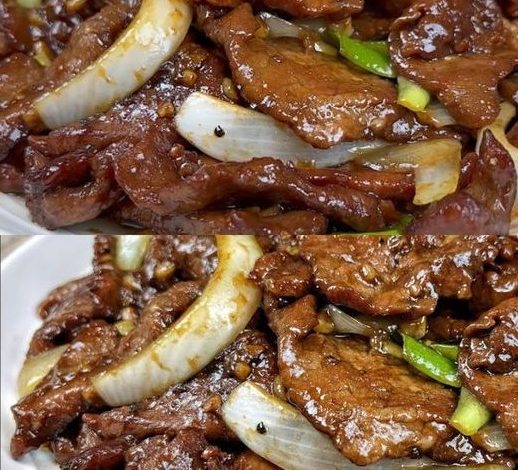
ADVERTISEMENT
Delicious stir fry with beef and onion
Entry:
Stir fry with beef and onion is a classic dish of Asian cuisine that combines small pieces of meat with the flavor of onion, all served with a light but delicious sauce. Learn how to prepare this dish by following the simple steps below. 97 9 80 ml water Instructions:
Roast beef:
Mix all the ingredients needed for the beef and marinade in a bowl: soy sauce, potato flour, olive oil, baking powder, sugar, salt and pepper. Stir well until the beef is done. Let’s marinate for at least 15 minutes.
Prepare the sauce:
In a small bowl, combine dark soy sauce and water. Save it for later.
Prepare the beef:
Heat a large skillet or wok over high heat. Add the marinated beef and cook for 2-3 minutes until cooked through. Remove the beef from the pan and set aside.
Vegetables: To the same pan, add more olive oil if necessary. Sauté the garlic and onions until fragrant and the onions are soft, about 2 minutes.
Combination:
Return the meat to the pan with the onions. Add green onions and prepared sauce. Mix well to combine all ingredients. Cook for another 1-2 minutes until everything is hot and the sauce has thickened slightly.
Seasoning and serving:
Season to taste with 1/2 teaspoon salt and sugar. Give one last round to match.
Serve the beef and onion hot, preferably alongside steamed rice or stir-fry.
Listings: This beef and onion stir-fry combines chunks of beef with the flavor of scallions, all paired with a simple but delicious sauce. A quick, easy and delicious way to enjoy beef.
ADVERTISEMENT




